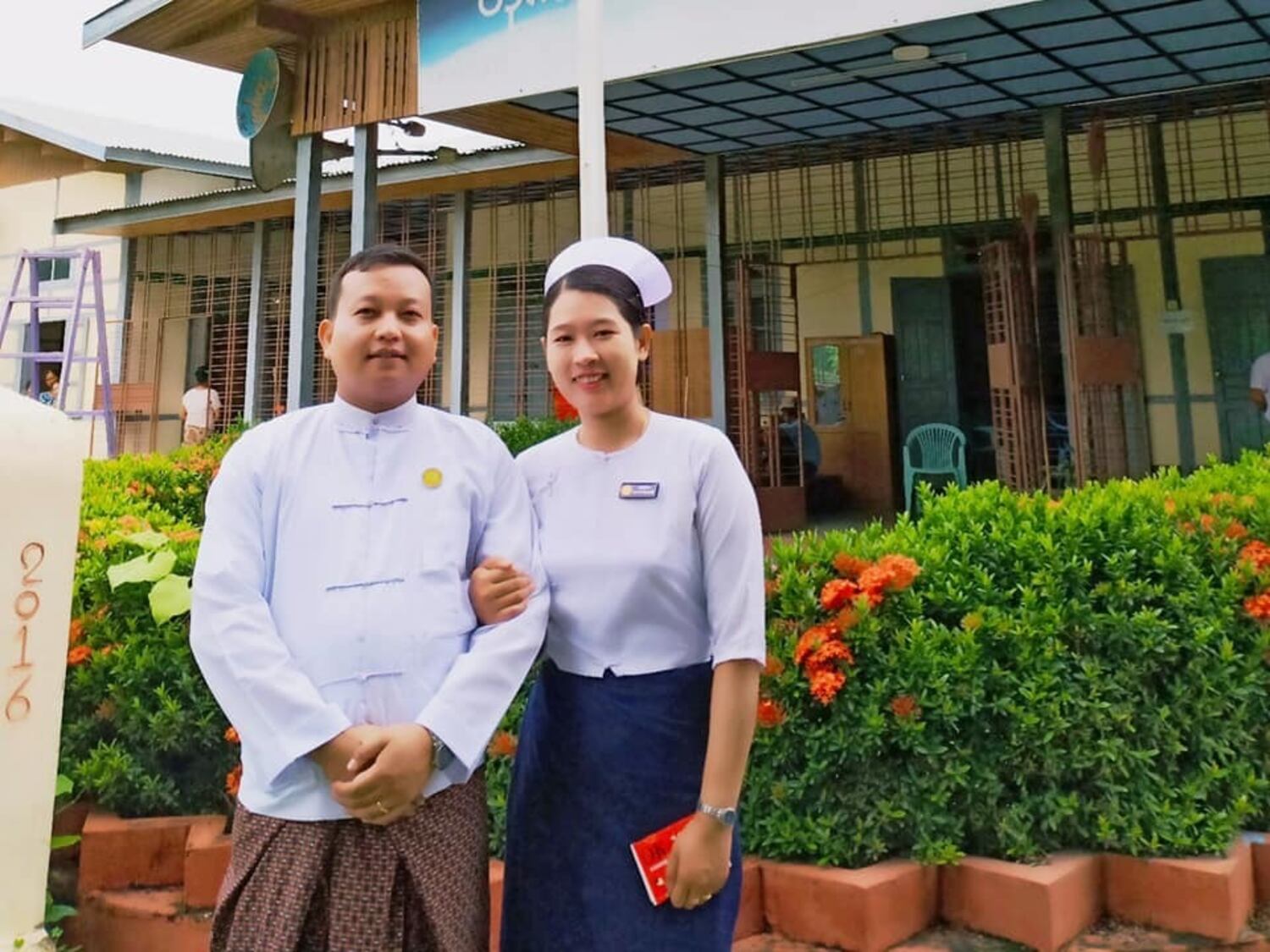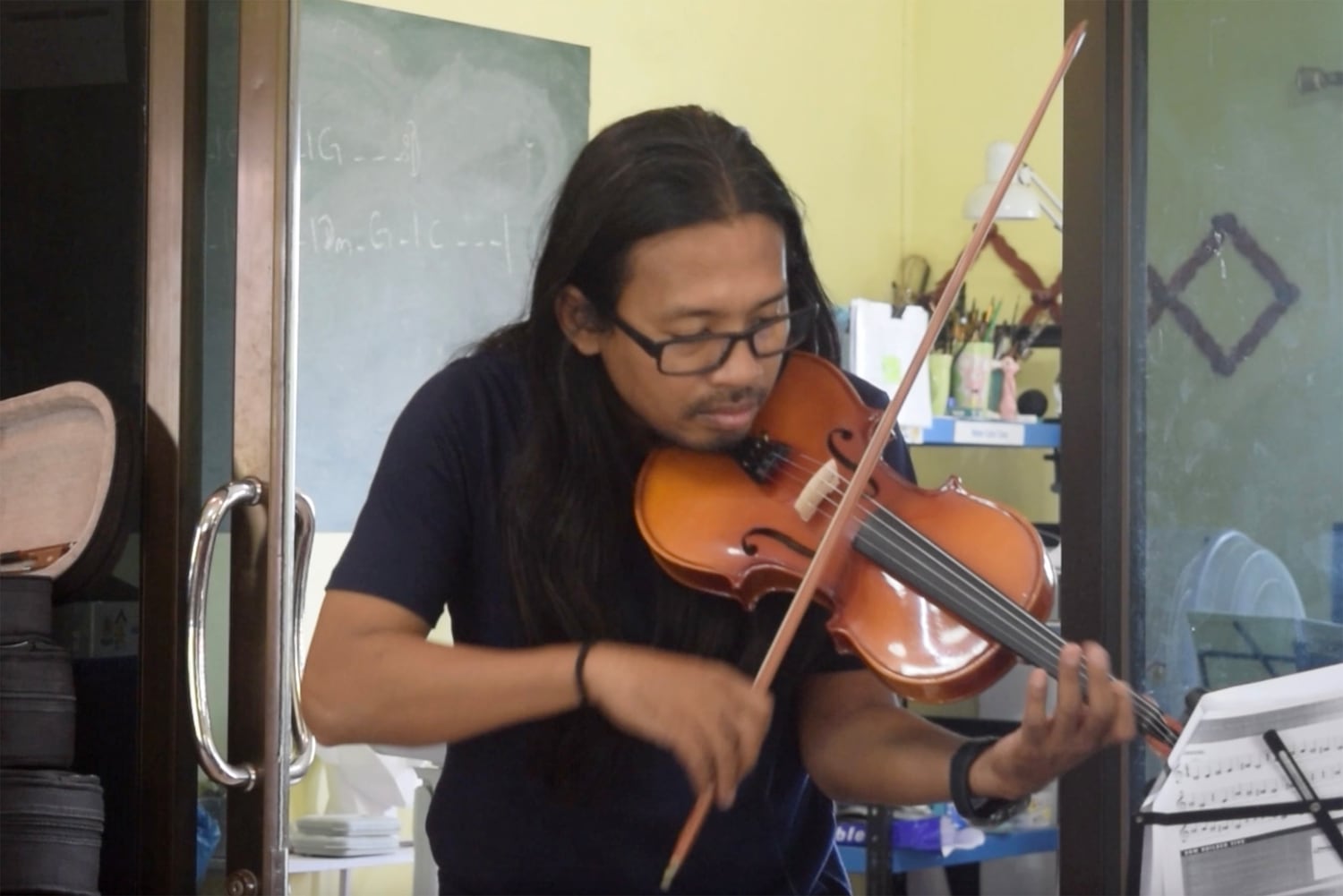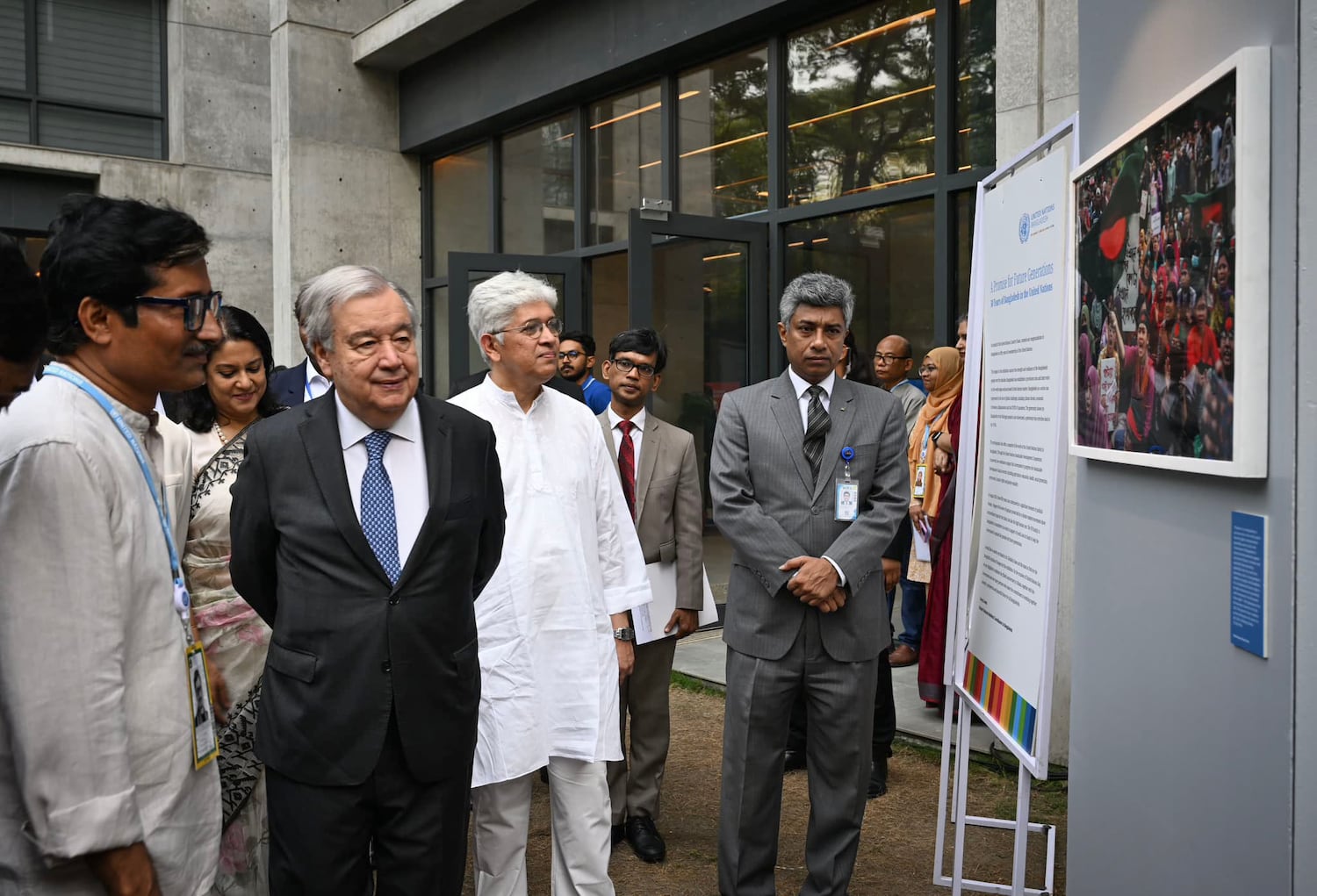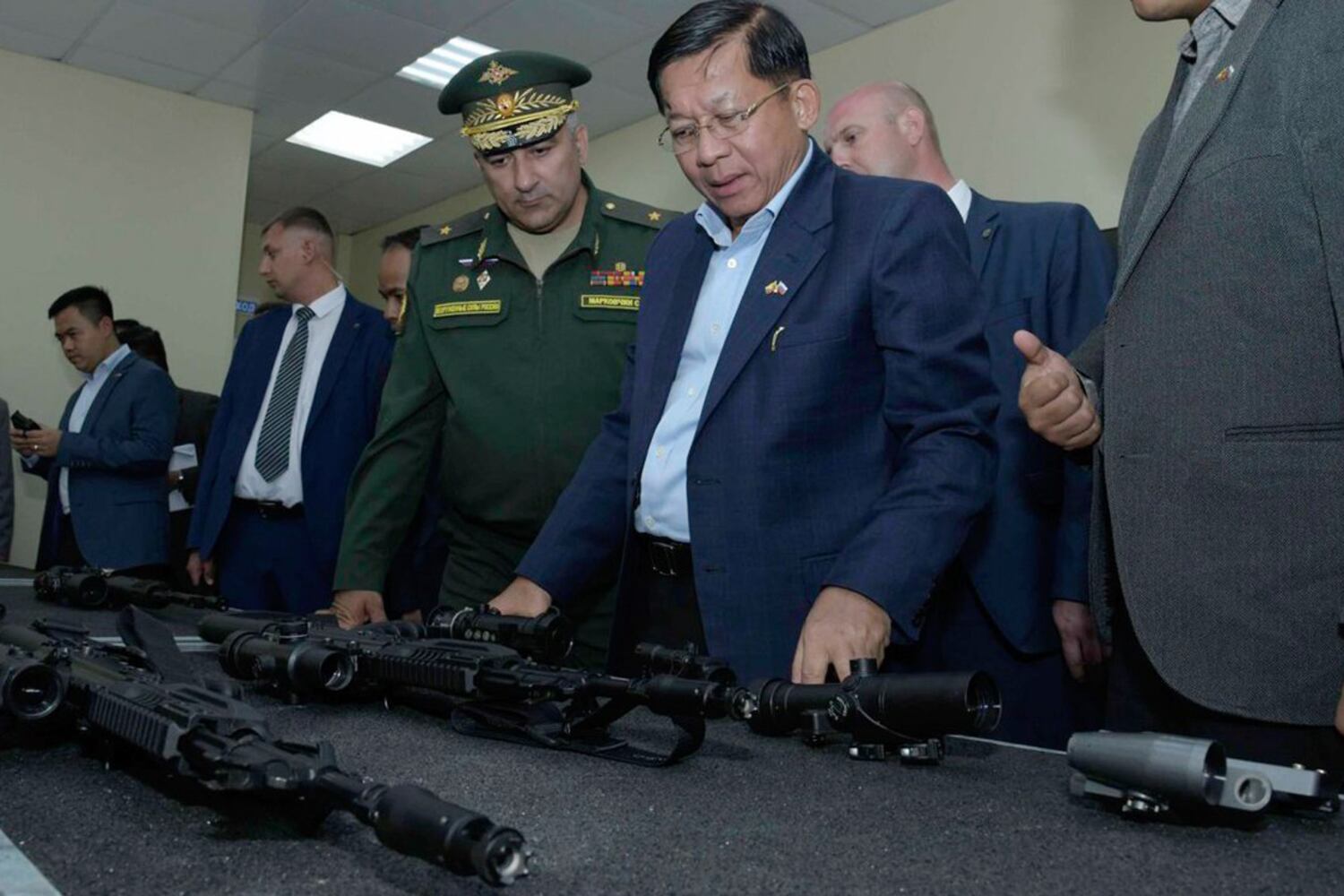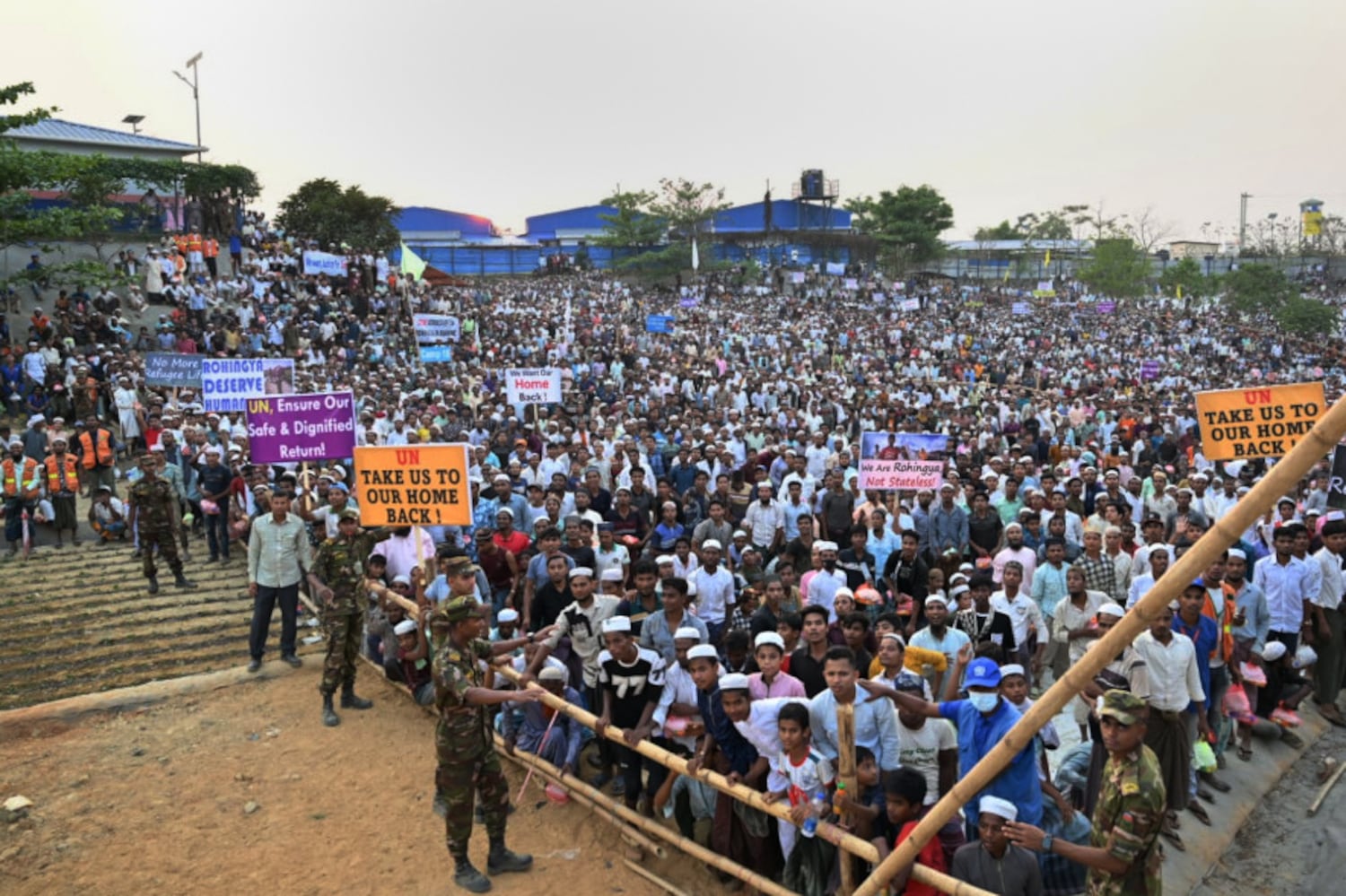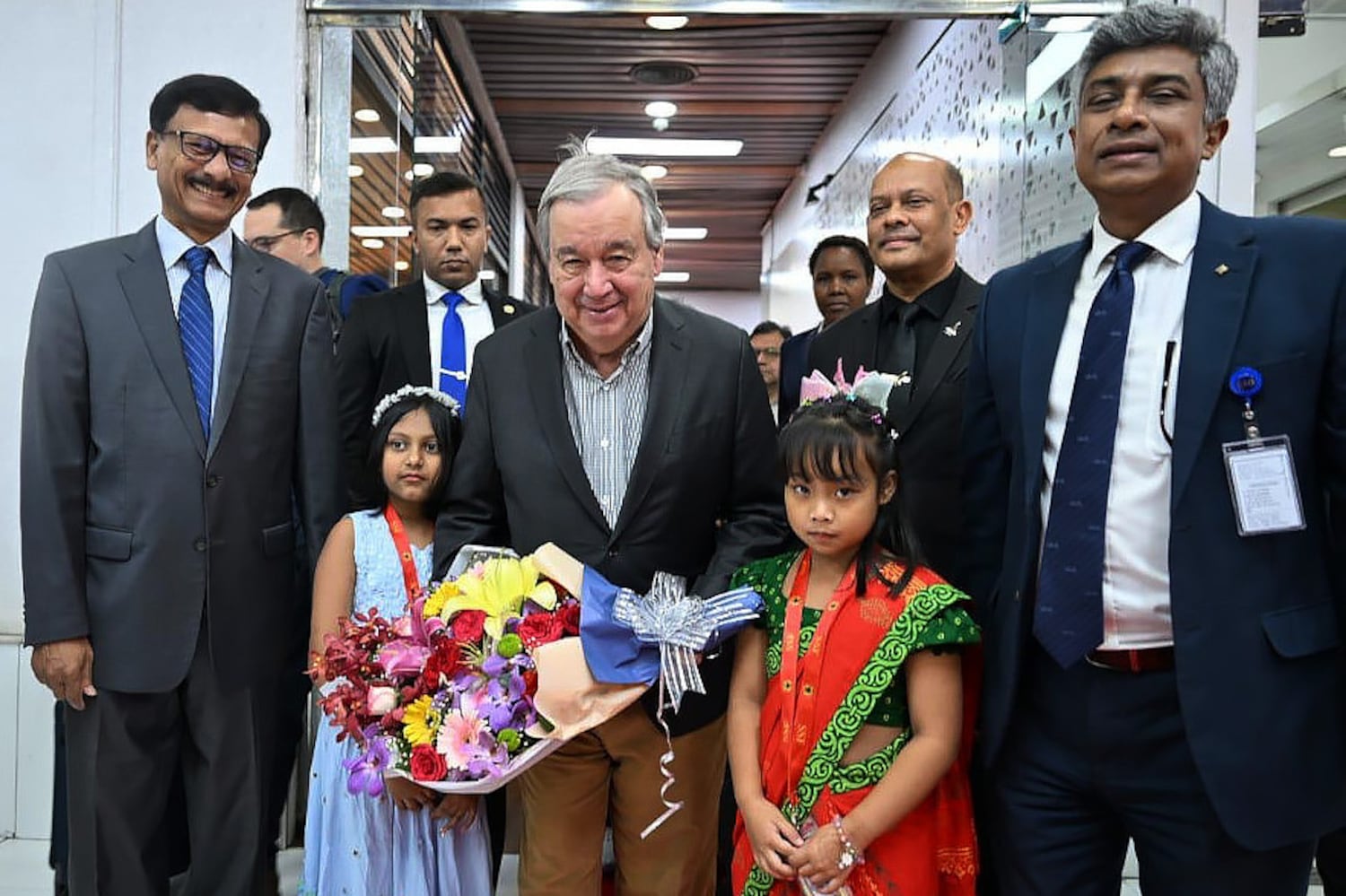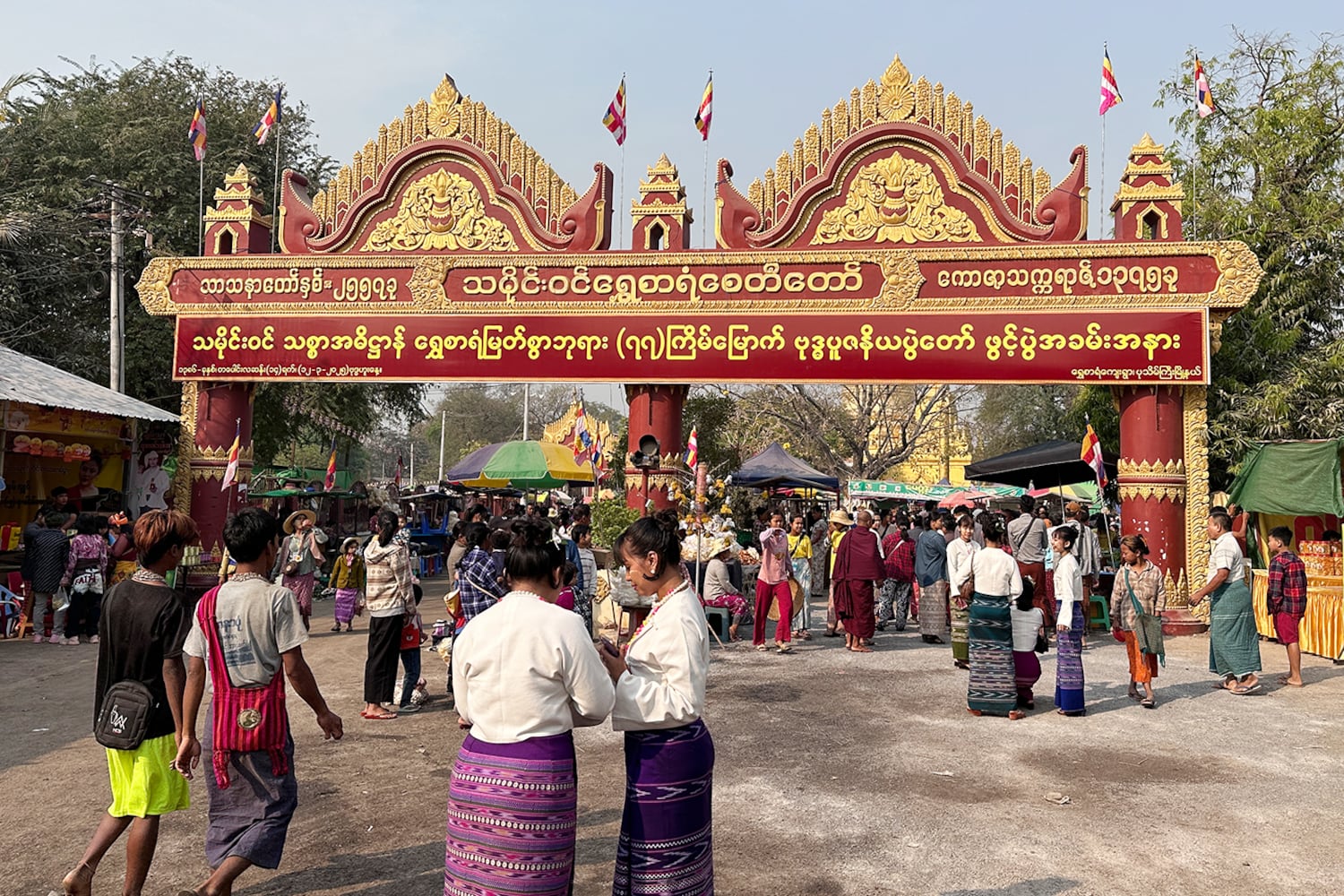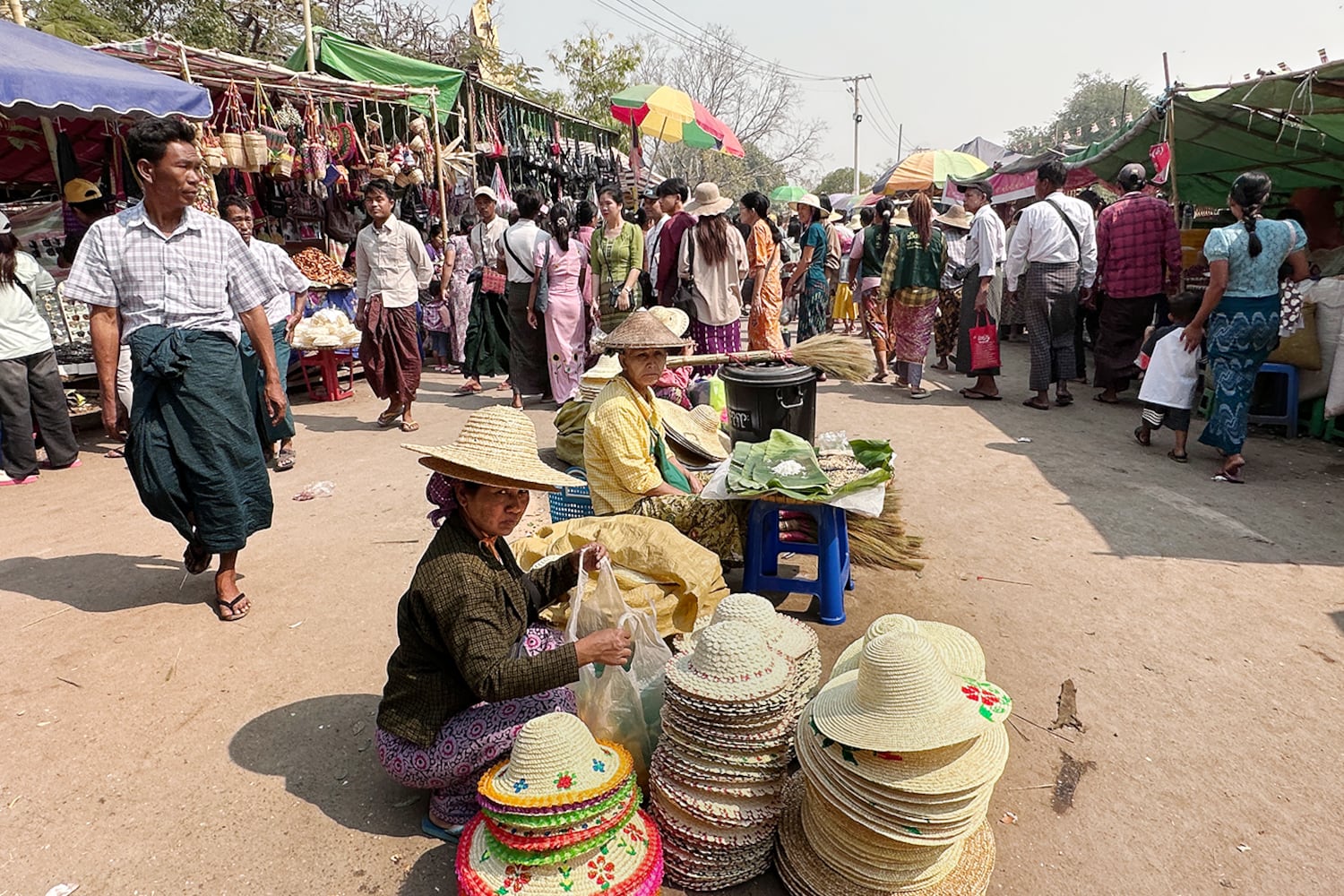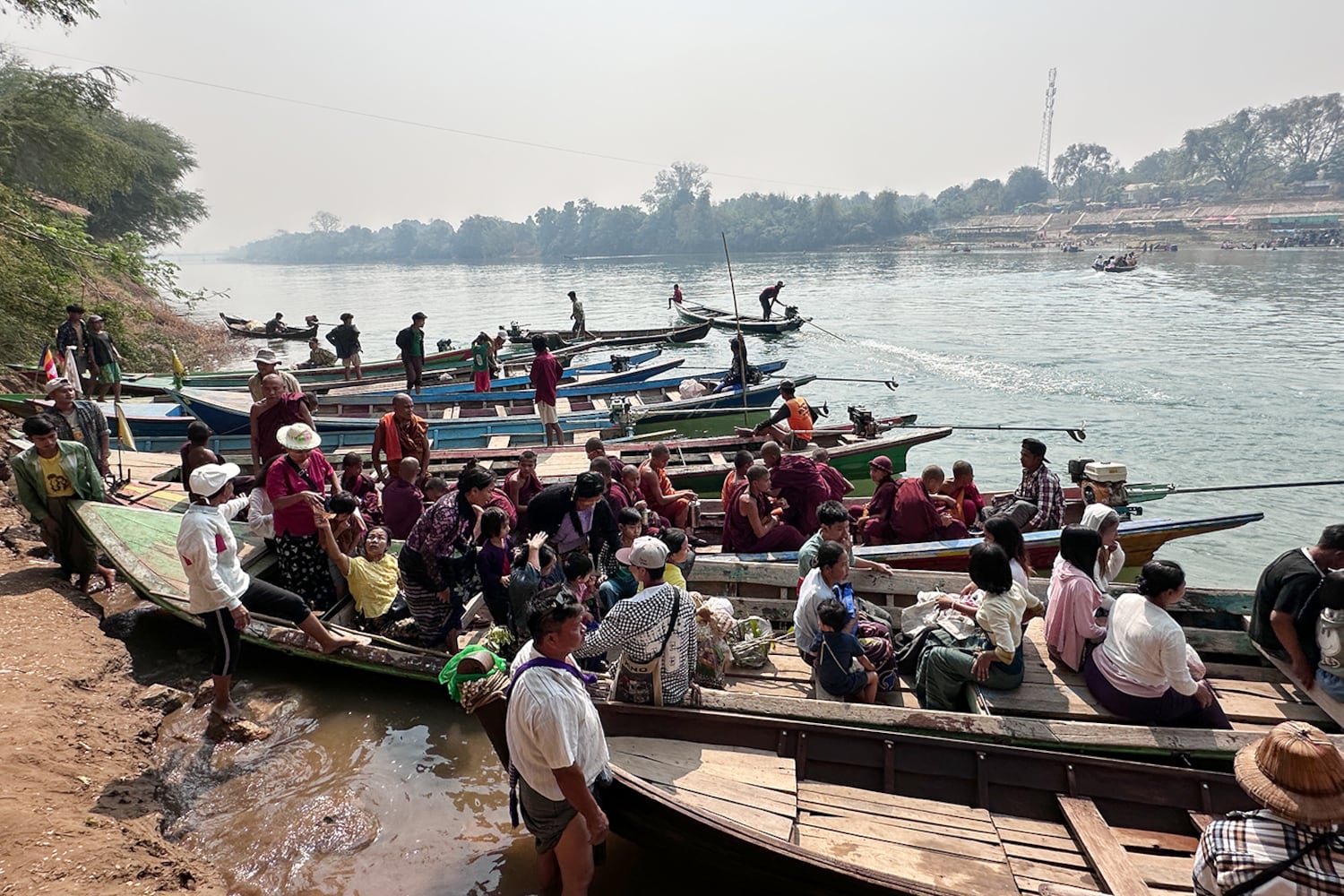On 13 February a federal court in Argentina issued arrest warrants for Senior General Min Aung Hlaing, head of Myanmar’s State Administration Council (SAC), and Aung San Suu Kyi, the former State Counsellor of the National League for Democracy (NLD)-led administration and the National Unity Government (NUG) and Nobel peace laureate. The warrants, issued under universal jurisdiction, accuse them of genocide and crimes against humanity committed against the Rohingya ethnic minority. (Universal jurisdiction allows states or international bodies to prosecute individuals for serious crimes like genocide and war crimes, regardless of where they occurred or even without a direct link through nationality.)
The court also named high-ranking military and civilian officials, including SAC Deputy Vice Senior General Soe Win, SAC core member General Mya Tun Oo, former Myanmar president Htin Kyaw, and local Arakan officials from majority-Rohingya areas of Rakhine State. In total, 25 Myanmar nationals were targeted.
Argentina is not the only country pursuing justice for the Rohingya genocide. International legal bodies and federal courts worldwide, including the International Criminal Court (ICC), the International Court of Justice (ICJ), and federal courts in Germany, Turkey, the Philippines, Timor-Leste, and the UK, are handling similar cases regarding the Rohingya under universal jurisdiction. The ICC recently announced an arrest warrant application for Senior General Min Aung Hlaing over the 2016–2017 military crackdown in Rakhine State. The ICC’s Chief Prosecutor also hinted that more arrest warrants could follow for other individuals involved in the Rohingya genocide. Despite these legal actions, enforcing the arrest warrants remains a significant challenge. The ICC lacks its police force, and arrests under universal jurisdiction depend on cooperation from Interpol member states.
However, the diplomatic fallout could be severe. These developments present significant challenges for the SAC junta and the NUG as they compete for international legitimacy. One the one hand, arrest warrants could further isolate the junta and undermine their planned elections. On the other hand, the NUG’s continuing obstinacy regarding Aung San Suu Kyi’s culpability in the Rohingya genocide may backfire on the NUG’s efforts to gain full international recognition as Myanmar’s legitimate government.
The inclusion of Aung San Suu Kyi and other senior members of her NLD-led government in the Argentine warrants has divided opinion. Many anti-junta Burmese initially welcomed the arrest warrants issued against Min Aung Hlaing and top military officials, seeing them as a step toward accountability for atrocities committed against Myanmar civilians since the 2021 military coup. For many Burmese, this was viewed as killing two birds with one stone: removing coup leader Min Aung Hlaing from power and delivering justice for the Rohingya. If the ICC arrests him, it could significantly weaken the military regime’s grip on power.
However, the inclusion of Aung San Suu Kyi and former president Htin Kyaw—the nominal head of state during Aung San Suu Kyi’s tenure as State Counsellor—has sparked significant controversy. This reaction is rooted in the “We Stand with Mother Suu” campaign, which supported the former NLD government’s defence against genocide allegations against the Rohingya brought against Myanmar at the International Court of Justice (ICJ), as well as the deep personal attachment many Burmese feel toward Aung San Suu Kyi.
Despite international criticism—especially over her denial of the genocide at the ICJ—Aung San Suu Kyi remains widely famous within Myanmar and among the Myanmar diaspora. For ethnic Bamar Buddhists, in particular, she continues to be seen as a symbol of democracy, human rights, and freedom. In an interview with Radio Free Asia, Bo Bo Oo, a National League for Democracy (NLD) MP elected in 2020, dismissed the latest charges against Aung San Suu Kyi as “meaningless”. Similar to the NLD’s stand on the Rohingya genocide before the coup, he argued that the “international community does not fully understand Myanmar’s political landscape.”
Will the NUG’s legitimacy become collateral damage?
The recent arrest warrants issued by the Argentine court could have significant diplomatic and logistical consequences for the SAC, further tarnishing its international credibility as it continues along its widely criticised plans for fresh elections as a prelude to restoration of nominal civilian rule. Min Aung Hlaing may also be increasingly concerned about his personal safety if he loses his position as military chief, posing a major obstacle to his presidential ambitions in the post-election period. Moreover, the safety and mobility of junta leaders, including Min Aung Hlaing, Soe Win, and other senior officials, could be jeopardised if Interpol warrants lead foreign governments to impose entry restrictions or limit access to their airspace.
Despite these challenges, the SAC relies heavily on China and a few other nations for diplomatic survival. The arrest warrant is unlikely to significantly alter Beijing and Moscow’s stance, as both have consistently provided the junta with political cover and military support. The SAC will count on China, Russia and certain regional allies—including ASEAN members like Cambodia, Laos and Vietnam—to endorse its planned election, which is widely viewed as a façade to legitimise its rule, despite continued opposition within Myanmar and the international community.
Related
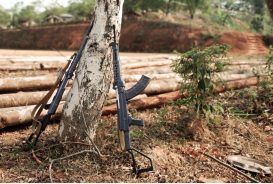
Framing the war in Myanmar as a ‘fight for democracy’ obscures the crisis of the nation-state at the conflict’s heart
Meanwhile, the arrest warrants are equally problematic for the NUG. Despite the previous NLD administration’s rejection of the Rohingya genocide allegations, the NUG and the Committee Representing Pyidaungsu Hluttaw (CRPH) have formally recognised the jurisdiction of the ICC and ICJ over Myanmar. Many Burmese sympathise with the plight of the Rohingya, who endured similar atrocities at the hands of the Myanmar military, and NUG has publicly apologised for the former NLD government’s stance on the genocide. Relations between the Rohingya—one of Myanmar’s most oppressed ethnic minorities—and the majority Buddhist population have improved since the coup. The NUG even appointed a Rohingya as its deputy human rights minister.
The Burmese Rohingya Organisation UK (BROUK), which filed the genocide case in Argentina, clarified that it had explicitly requested that the prosecutors exclude civilian leaders like Aung San Suu Kyi from the arrest warrant due to the current political landscape, and that the decision to include them nonetheless was solely the court’s. However, some of Aung San Suu Kyi’s loyalists are expressing anger, frustration, and hostility, urging that the Rohingya should focus exclusively on the Myanmar military as the common enemy rather than filing charges against her. They also pressured the NUG to reject Argentina’s arrest warrant for civilian leaders as a government official response and questioned the Rohingya genocide survivors on their loyalty to Aung San Suu Kyi.
In response to this pressure, the NUG’s statement on the Argentina court’s arrest warrant contradicted its previously-stated position on international legal action. While the NUG welcomes arrest warrants for military officials, the NUG’s accusation of the independent court’s decision on arrest warrants for civilian leaders as “misguided and erroneous” raises serious international concerns. This is particularly relevant given that the United Nations-led Independent Investigative Mechanism for Myanmar (IIMM) supports the universal jurisdiction cases in Argentina and provides evidence related to the Rohingya genocide. The court may interpret the NUG’s rejection of an independent judicial ruling as an indication that justice for the Rohingya cannot be expected, even under a future post-military regime in Myanmar. Consequently, NUG’s selective justice approach could reinforce the perception that international legal intervention remains the only viable path to justice for Rohingya genocide survivors.
A test for the NUG
The NUG’s handling of Aung San Suu Kyi’s reputation has become a critical fault line within its coalition, wedging former NLD members, ethnic organisations, and liberal-democratic groups within the NUG and CRPH. The NUG’s contradictory response to the Argentine court’s ruling represents a significant strategic misstep. While they have previously endorsed international legal mechanisms, rejecting an independent court’s decision now exposes a double standard, implying that justice is selective and dependent on political considerations. Caught between competing pressures, the NUG faces a precarious balancing act: rejecting the warrant outright risks alienating the Rohingya community and international human rights advocates; accepting it could fracture its own ranks, particularly among NLD loyalists and Buddhists who still view Aung San Suu Kyi as an untouchable democratic icon.
The Rohingya issue thus remains a litmus test for the NUG’s credibility as a democratic government committed to a rules-based order and universal human rights. While its public apology and the appointment of a Rohingya minister were steps toward reconciliation, its defensive stance on the arrest warrant suggests a lingering reluctance to confront past mistakes fully. How the NUG navigates this dilemma will determine its moral standing and ability to unify a fractured opposition.
On the international stage, the United States government has already officially recognised the Rohingya genocide, with key evidence displayed at the Holocaust Memorial Museum in Washington, D.C.—including social media statements from Min Aung Hlaing’s and Aung San Suu Kyi’s offices, propagating fake news and disinformation against the Rohingya. Additionally, several Western democracies, including Canada, Denmark, France, Germany, the Netherlands, and the United Kingdom have submitted a joint declaration of intervention in the case brought by The Gambia against Myanmar at the ICJ, which Aung San Suu Kyi personally defended before the coup.
Given this, the NUG’s relationship with Western democracies could become more complex due to Aung San Suu Kyi’s role as State Counsellor within the NUG government, even if her position remains largely symbolic. While the Myanmar Revolution is primarily driven by the pursuit of democracy and a federal state in a post-junta scenario—often at great sacrifice by the younger generation—the NUG’s accusations against the independent court’s arrest warrant as “misguided” is political suicide, and risks framing the revolution as a power struggle between Aung San Suu Kyi loyalists and military supporters. If the ICC or Interpol issues additional arrest warrants against former NLD leaders now affiliated with the NUG, it could further strain the NUG’s stand on human rights and democracy.
Reaffirming a commitment to rights
The NUG must make a decisive choice, affirming that no one is above the law. To uphold its international legitimacy and advance Myanmar’s democratic revolution, it must prioritise democracy and freedom for all, regardless of race or religion. Furthermore, there are growing allegations that other Buddhist-majority militant groups, such as the Arakan Army, have targeted the Rohingya as well. In this context, the NUG must formulate a strategy that affirms its commitment to human rights and democracy, regardless of ethnicity or religious background, and demonstrates its actions to protect the rights of all individuals in Myanmar.
A potential game-changer could arise if the NUG successfully convinces former President Htin Kyaw, currently living freely in Myanmar, to testify in the Argentine trial. His testimony could clarify the extent of civilian leaders’ involvement and whether the military deceived or coerced them into complicity in the Rohingya genocide. If he provides credible evidence that Aung San Suu Kyi and other civilian leaders were not active participants, it could both restore her reputation and refocus accountability on the military’s true architects of the atrocities. Furthermore, such testimony could strengthen the case against Min Aung Hlaing and SAC leadership, reinforcing the NUG’s commitment to human rights and justice.
However, failure to address these legal and historical questions transparently risks deepening political fractures within the opposition and undermining the NUG’s credibility on the international stage. The NUG now faces a critical choice: either embrace full accountability and align with global justice and human rights efforts or risk being seen as another political entity shielding its leadership from justice. The outcome of this decision will be essential as the NUG continues to seek international recognition as Myanmar’s legitimate government.
The post Rohingya genocide warrants and the legitimacy battle in Myanmar appeared first on New Mandala.
This post was originally published on New Mandala.

